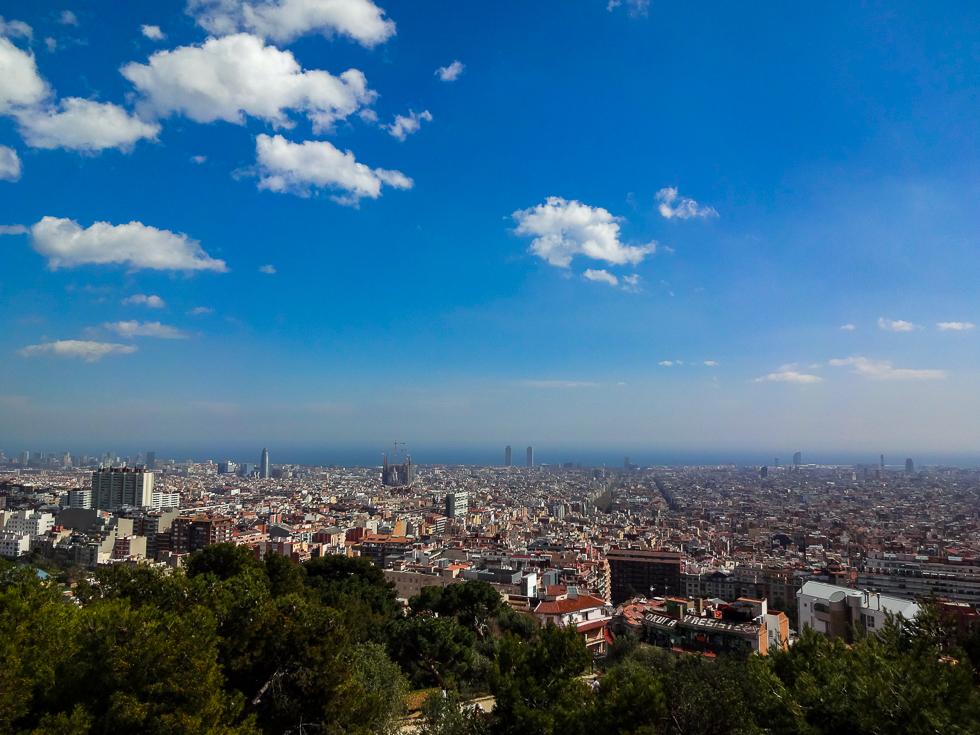
Barcelona, Spain: beautiful city, but suffering massively due to overtourism
You know the feeling: you’ve finally embarked on your dream trip, to that special city or site that you’ve wanted to visit for ages, that lucky others have shared amazing photos of all over Instagram and Facebook. When you finally arrive, you find this amazing site… as well as droves of other tourists. In the best case scenario, this is a total bummer. But in the worst case scenario, you’ve found yourself in a destination plagued by overtourism. Overtourism is a big problem, which goes far beyond a traveler’s ability to vacation in peace. Overtourism fundamentally affects the quality of life in a given location, straining access to resources and degrading the local environment and culture. But what causes overtourism, and what are the implications of it? And what can we travelers do to combat overtourism around the globe? In this post, I break down a definition of overtourism, as well as the main causes of overtourism. Additionally, for the travelers out there, I list the many things that we can do to combat overtourism, even while off on our global adventures.
A definition of overtourism
Overtourism is the result of too many tourists in a given destination, which reduces quality of life for locals. “Too many” is a relative term: it can mean as many as an extra million tourists in an urban center, or as little as an extra 50 in a remote village. Some consequences of overtourism are increased housing and rent prices, congested streets and public transportation, and a decreased access to resources necessary for day-to-day life, such as grocery stores and pharmacies, water and food, clean air, and more. Lately, overtourism in Venice, Barcelona, Dubrovnik, and other popular European cities has been making the news, but overtourism is not unique to Europe, or even to cities. For example, a small farm in Ontario, Canada recently had to close when a viral Instagram post resulted in a huge influx of tourists. The farm had capacity for 300 cars for visitors to the site, but after a photo went viral the farm saw as many as 7,000 cars in a single day, resulting in the destruction of its sunflower fields, a huge increase in garbage, and multiple trespassers on this small, family-run operation.
The causes of overtourism are multifaceted, though overtourism can generally be attributed to governments, the travel industry (including travel writers and influencers), and travelers themselves. Government tourism agencies push for growth of tourism within their countries because of the economic impacts, yet many sites worldwide lack the appropriate infrastructure and tourism management practices to accommodate for ever-increasing numbers of tourists without facing environmental and cultural degradation. Travel writers, bloggers, and influencers also contribute to overtourism, because the job of a travel writer (especially one who is economically dependent on the success of the travel industry), is essentially to sell travel to consumers, which encourages mass tourism. Additionally, with the ready availability of budget airlines, and the fact that international travel nowadays is relatively easy (for example, you can get from New York to Hong Kong in 15 hours and for a couple hundred dollars), more people are jet-setting now than ever.
All in all, overtourism is a big problem with a number of contributing factors. Concerned travelers, read on. Here is a list of simple steps that world travelers can take combat overtourism around the globe.
Rethink your destination
If a location is suffering due to overtourism… simply don’t go to this place. Just because your bank account and your passport say that you can go somewhere, doesn’t mean that you actually should. Plus, there are so many amazing countries, cities, and towns around the globe that are not suffering due to overtourism, that could also benefit from some of your hard-earned dollars. How about instead of Barcelona you check out a different Spanish city? (Personally, I prefer Sevilla anyway!). How about instead of Bali (which is suffering from a massive water crisis, by the way), you choose a lesser-traveled spot in Indonesia? This is an example of what it means to give up your privilege, by the way. We are not entitled to free range of the globe when real people suffer the consequences of our vacations.
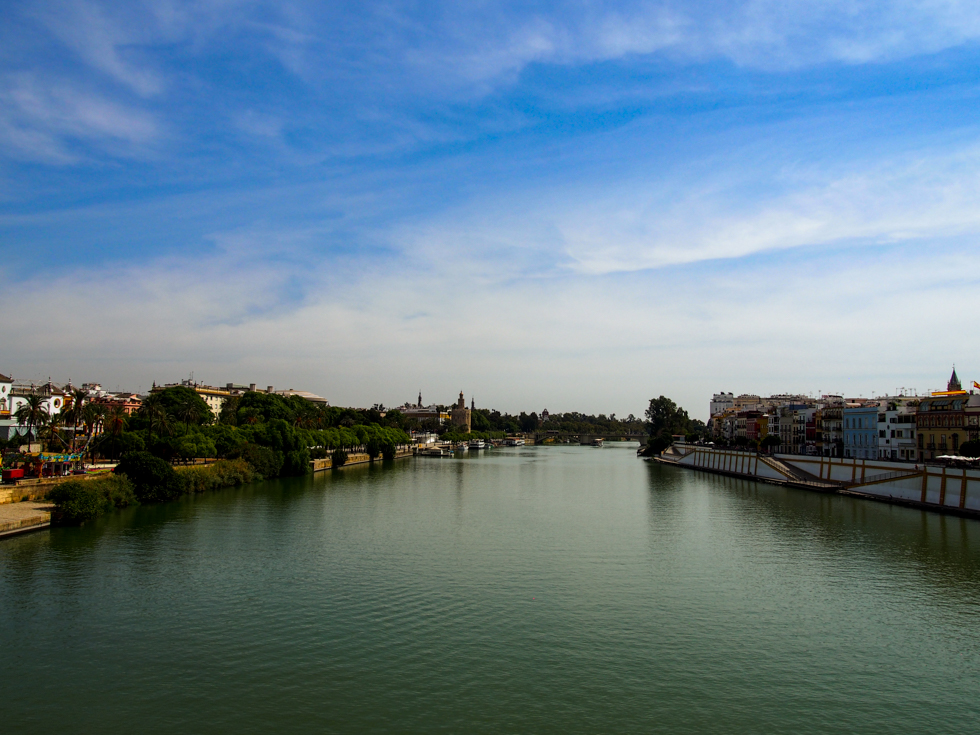
Barcelona is totally overrated, y’all. Why not try a different Spanish city, like Sevilla or elsewhere in Andalucia?
Travel during the off-season
If you absolutely must travel to a location that is suffering from overtourism, try traveling during the off-season instead. Off-season travel is a win-win, actually. It means that there is less of a demand on the resources of a place, because there are fewer people present, and thus less congestion and scarcity of resources. And for the tourist, off-season travel is great because overall travel costs tend to decrease. Flights are cheaper, accommodation is less likely to sell out, and tourists are less likely to see surge pricing. Plus, off-season travel means that tourists can enjoy sites and cities without being around droves of other, well, tourists.
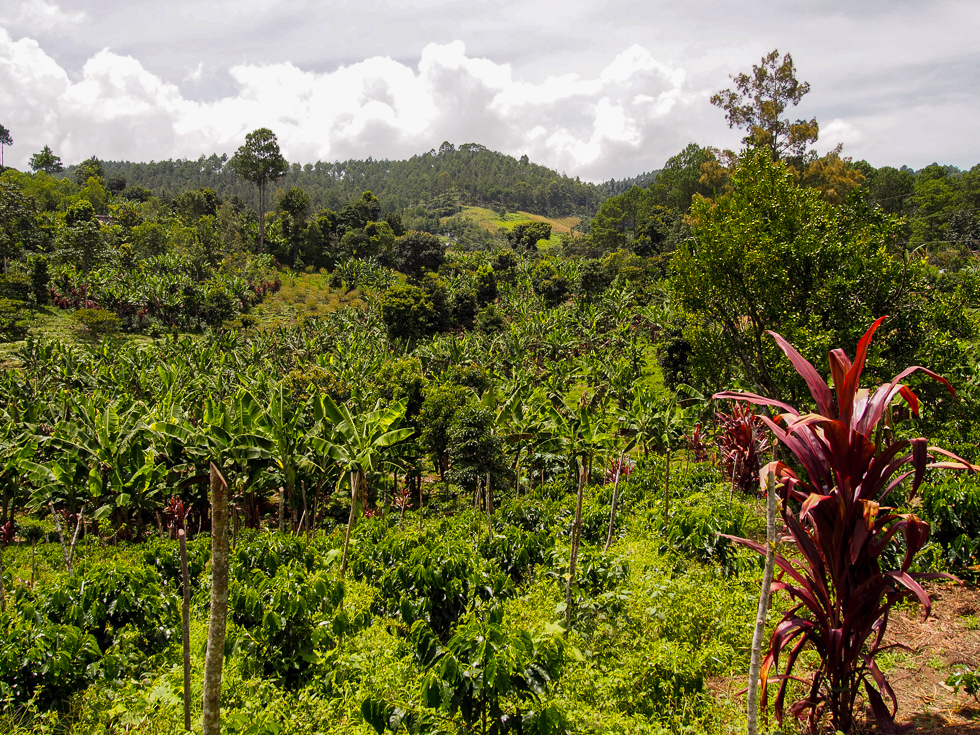
I traveled to Guatemala during the off-season, and it was great! It was so easy to book last-minute accommodation, and I was one of very few tourists at many sites, such as during my trip to the Chicoj Coffee Cooperative near the city of Cobán
Make sure your money stays local
Here’s a depressing statistic for you: generally, less than half of every dollar spent abroad stays within the local economy. In the worst cases, only 5 cents of every dollar spent in developing countries remains. So we should take a step back when talking about the economic impacts of tourism, and really consider where our money goes during our vacations. Travelers: support local operations. Stay in locally owned accommodations, go to local restaurants, and utilize locally owned and operated tourism agencies. Staying in an international hotel chain and going to Starbucks while abroad only ensures that your money leaks out of the local economy. And especially if you’re a traveler who likes to “live like a local”, then I encourage you to put your money where your mouth is, and support locally-owned enterprises to maintain the character of the places we visit.
Another tip for making sure your money stays local? Avoid all-inclusive hotels. While all-inclusives are certainly convenient, they are typically owned by foreign corporations, ensuring that the majority of your money spent on holiday leaks out of local hands. People on all-inclusive vacations have already paid outright for all of their food and activities, and thus there is little incentive to venture away from the hotel grounds, to try local restaurants, embark on a locally led tour, or visit a cultural site. However, these experiences are what allow us to really dive into the culture as travelers, and supporting local is a great way to ensure that you have a more authentic travel experience.
Avoid gentrification due to illegal hotels and other rent-spiking accommodation
One of the drivers of overtourism is the rising utilization of illegal hotels, Airbnbs, and other tourist accommodations that cause rents to spike. These accommodations affect housing markets in cities and towns around the world. If a tourist will pay more for a short-term rental, there is little incentive for a landlord to make that rental unit available for a longer-term tenant. In many cities where housing is already a huge issue, such as in New York or San Francisco, this leads to a further decrease in rent-controlled units available for locals, which drives locals out of their own cities. To combat overtourism and to preserve housing for locals, many cities around the world are cracking down on Airbnb, limiting the number of short-term rental days per year, and in some cases banning it outright. While Airbnb is certainly not the only culprit in housing crises around the world and it is not the only driver of overtourism, I think that it merits critique and consideration during our trip planning.
It’s here that I want to very intentionally use the term gentrification, as overtourism is actually one manifestation of gentrification. In cities and towns suffering from overtourism, the character of the city changes to cater to tourists, which is a process of gentrification in which the landscape no longer supports locals. This means sort-term rental units and Airbnbs replacing apartments and houses for locals, expensive restaurants but a lack of grocery stores, and markets that no longer sell fresh meat and produce but that instead takeaway food for tourists. But one way to combat overtourism and its resulting gentrification of cities worldwide is to be mindful of where we stay, and the businesses and services that we support while traveling.
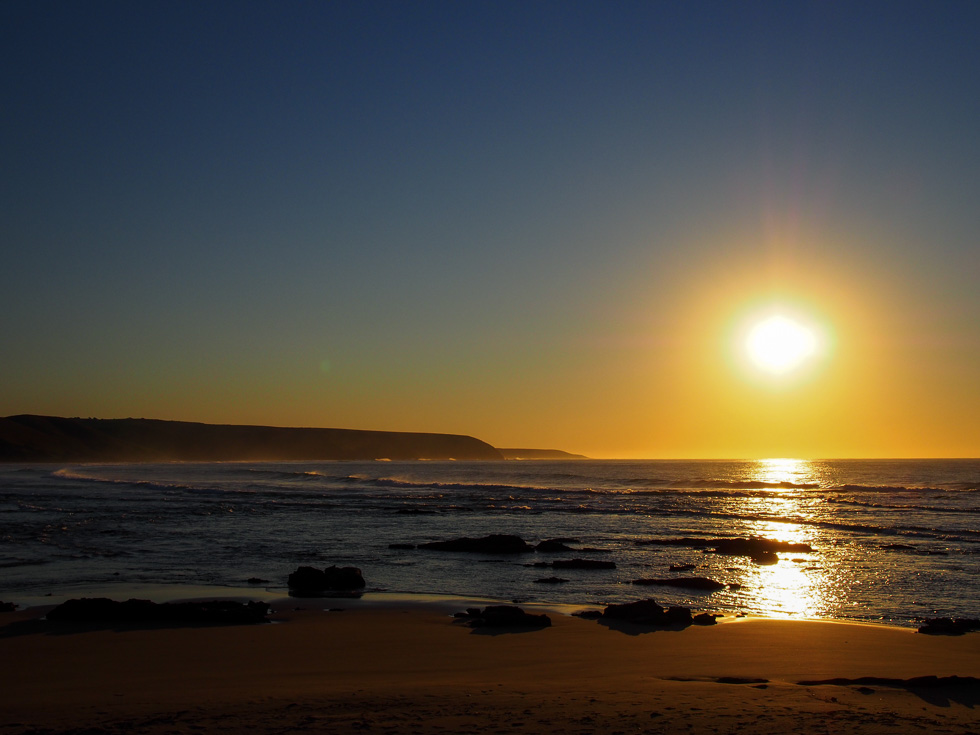
The view from Bulungula Lodge in the Transkei, Eastern Cape, South Africa, a community owned hostel and one of the best places I have ever stayed during my travels!
Avoid cruise ships
One simple solution to the overtourism problem is to avoid cruising. Cruise ships, in addition to posing numerous environmental issues and human rights concerns (including worker exploitation, pollution, and waste issues, to name a few), are essentially floating cities… resulting in a barrage of people (oftentimes in the thousands) arriving at a destination port all at once. This means a huge, temporary influx of people in a city for just few hours, who generally spend very little money in the destination city (especially considering the ready access to food and entertainment on-board). Furthermore, cruise ships idling in ports release a tremendous amount of pollutants into the air, which poses health risks to locals.
Travel in your own city
This is perhaps the simplest solution to overtourism: travel at home. Get out and enjoy an activity that you’ve always wanted to try in your city, visit a new part of the city where you live, or do a day trip to a nearby location. I know, it doesn’t have the same sexiness as getting in an airplane and jetting across the globe, but it is undoubtedly the cheapest, easiest, and most environmentally friendly way to travel. And while not everyone lives in mega metropolises like New York, London, or Tokyo… that doesn’t mean that enriching local travel isn’t possible, even for folks who live in small towns. I personally feel that there are always unknown parts of the regions where I have lived, even when I’ve been in the same place for years! Take a drive and get to know a nearby town, spend a day out in nature, or try an activity or a restaurant in your town that you’ve never tried before. You might be surprised by what your city or town has to offer.
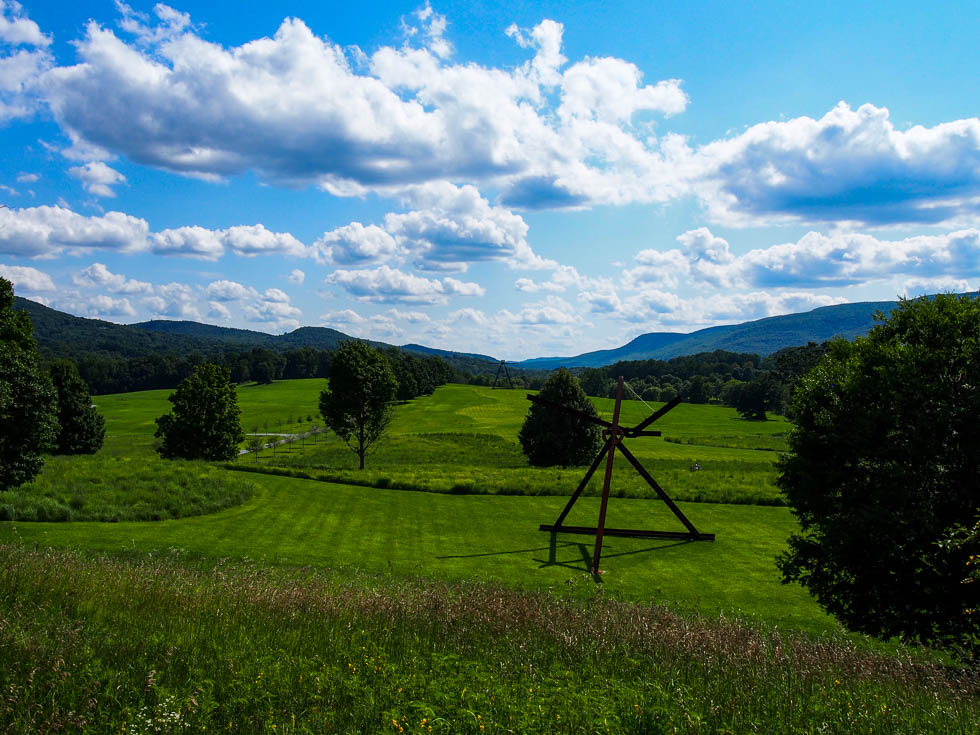
Local travel can mean taking a day trip to a nearby city or site. This summer I visited Storm King Art Center in Beacon, New York (just an hour and a half from my home in NYC), and it was incredible!
Mind your social networks
I believe that one very important thing that we can do to combat overtourism is to transform the online conversation surrounding travel. This especially goes for travel bloggers and influencers, but it applies to anyone with access to social media and an online voice. Through social media, we transmit messages about travel and the places we visit. I’m not saying not to share your travel photos with your friends and followers, but I do think that there is a need for more mindfulness when it comes to the content that we share and how we talk about it. For the average traveler: what kinds of messages do your Facebook friends receive when they see your travel photos? Is there a way to more mindfully present our travel stories so that we can share our experiences while being respectful of those who cannot (or should not) partake in the same experiences?
And here is something that I’ve been toying with: I think for folks with access to digital platforms, we have to be very careful about what photos and blog posts we share and the influence that they can have. For this I like the case study of the Ontario sunflower farm, as discussed above. I’m sure that the person who posted the sunflower Instagram post didn’t expect the far-reaching (and destructive) impacts of their post. But influencers are just that – people who influence others. If a destination doesn’t have the capacity to receive the scope of one’s influence, maybe we need to change our social media and blogging best practices – including not geo-tagging certain locations, or simply not writing about others.
Don’t buy into the commodification of travel
The travel industry is just that – an industry – that profits off of all of us traveling as much and as often as possible. However, when we commodify travel in this way, I feel that it loses its intentionality. Are those “50 Ultimate Travel Bucket List Destinations” or “30 Countries To Visit Before You’re 30” lists really anything but self-serving, to teach us that if we’re not traveling internationally as far or as often as possible, that we’re somehow doing life wrong? I reject any sort of commodification of travel in this way, because yes, travel can be wonderful, transformative, and beneficial, but it is not exclusively positive. I love travel and I understand the appeal of it, but I also believe that travel should never be viewed as a solution to our personal problems or an antidote to our societal shortcomings. Travel is not necessary in fostering worldliness or cultural awareness, and in fact, our prejudices can easily travel with us. And of course, not everyone can travel.
If you chose to travel, do so intentionally. Not because some travel bloggers are saying that everyone should travel, not because you’re looking for some #instaworthy fodder, but because you are really looking to dive into the culture, history, and way of life of another place. In the face of a travel industry that pushes numbers and profit before human dignity and peace, resulting in the overtourism mess that we’re current wading through, there is no solution without intentional travel. So I encourage all travelers to start a conversation with themselves: “Why do I travel, and why in particular do I want to travel there?” And with that answer, we can make ethical and informed decisions about our travels, and how they can impact the people and places that we pass along the way.
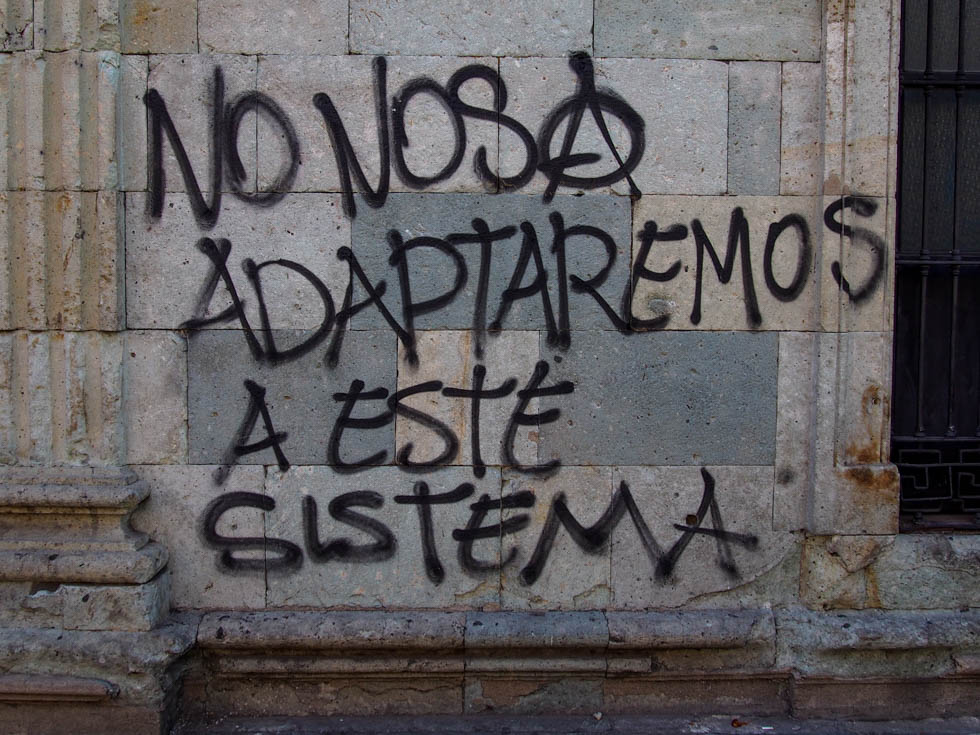
This seems like as good a place as any for some anarchist graffiti, which reads “no nos adaptaremos a este sistema” (“we will not adapt to this system”) seen in Oaxaca, Mexico
Overtourism resources
Looking to learn more about overtourism? I recommend checking out the following resources:
- Watch Crowded Out, a short documentary available online that goes into everything overtourism: what causes it, what its impacts are, and what we can do to fix the problem
- Check out these general resources about overtourism: “Overtourism: a growing global problem” and “The growth paradox: can tourism ever be sustainable?“
- This article about the idea of the “right” to travel: “Is travel a right? The concept of right & when it’s just wrong“
- My other articles about ethical and sustainable travel: Is Travel Exploitative? 9 Tips For Responsible Travel and Eco-Friendly Travel Tips For The Environmentally Conscious Traveler. Also, don’t miss my Ethical Travel archives for even more posts.
What do you believe is the best way to combat overtourism? What are your thoughts on how social media affects mass tourism? Are you willing to not travel to a certain place that is dealing with the brunt of overtourism? Why or why not? Let me know in the comments below!
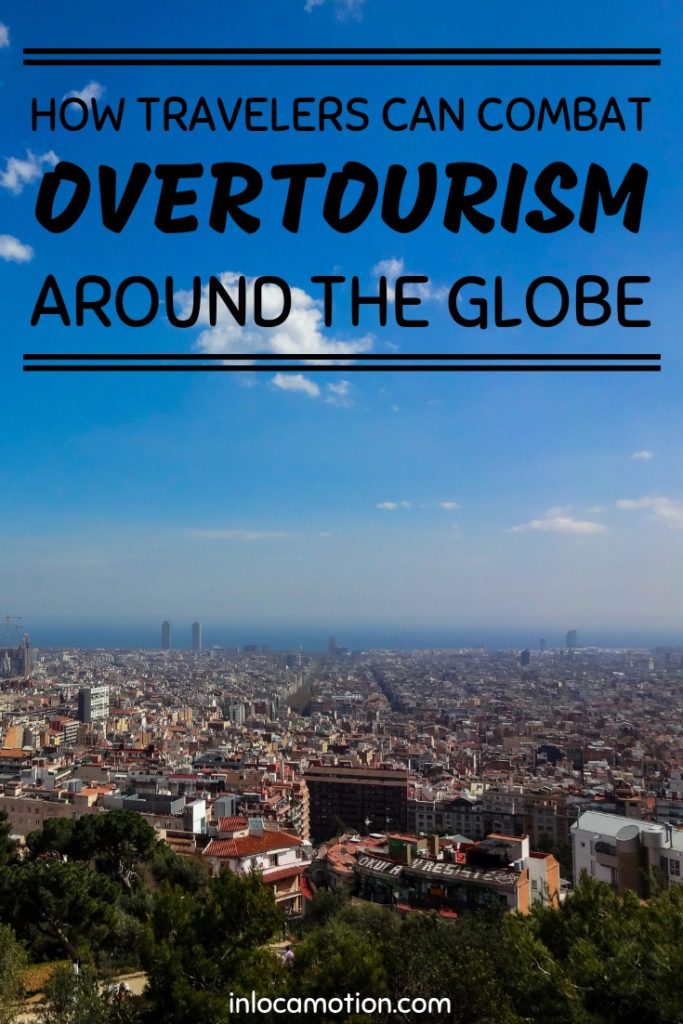









9 comments
Beautifully done. Right on target and well written and communicated. Terrific…
Thanks so much, Carolina!!
These are excellent tips! I’ve just arrived home after a year in Vietnam where I unfortunately saw the ill effects of over-tourism in pretty sharp relief. Definitely something we should all be wary of. I’m going to check out that documentary now 🙂
I’m glad that you found the tips useful! I’m curious about where in Vietnam you were living? Did you notice the effects of overtourism to be worse in certain cities? Thanks for sharing your observations and hope you find the documentary helpful as well 🙂
Excellent piece, thank you for sharing. The effects of over tourism are bad and people have to get aware of it. I’m avoiding Airbnb because of what I heard in Lisbon. Thousands of apartments rent out to tourists while locals don’t have the chance to rent. I also liked your words about the commodification of travel and the bucket lists. Traveling is great but sometimes I am tired and happy to be back home. It opens your mind but can also be exhausting. There are always two sides – even when you travel
Hi Nicola, thanks for your thoughtful comment. I’m the same way with Airbnb, I just don’t want to mess with it at this point. And I appreciate your thoughts on the ups and downs of travel – it’s definitely a balance, but I think travel media does a pretty bad job presenting it as such. Thanks so much for your positive feedback 🙂
Over tourism is a big problem in Asian countries leaving beaches damaged. In the Philippines, our most famous island, Boracay, had to be closed down and rehabilitated because of pollution from overcrowding and environmental violations from illegal hotels and businesses. I like your tips and you are really talking about a great topic. Its nice to see bloggers like you use your influence to talk about topics that matter.
Thanks so much, Erika Ann. I think the case of Boracay is especially complex because of the simultaneous economic and environmental considerations there. When an economy that’s dependent on tourism has to shut down, the local environment might improve, but the people working in tourism get screwed! All the more reason to call for a drastic restructuring of how we travel, to avoid situations like this in the future. Thank you for bringing this up and for your thoughtful comment 🙂
Incredible post. Very well articulated with take away points that are influential in the best way!